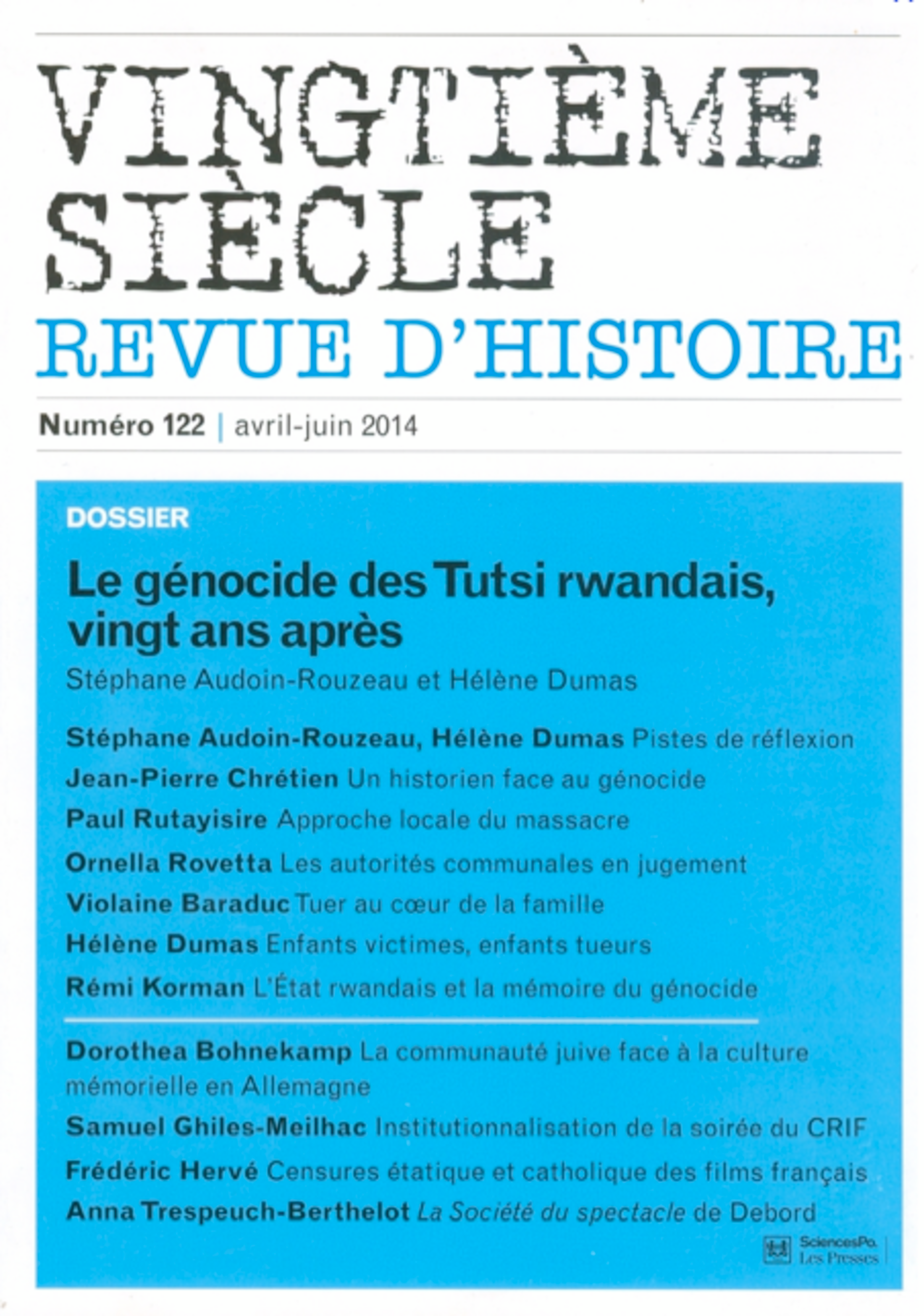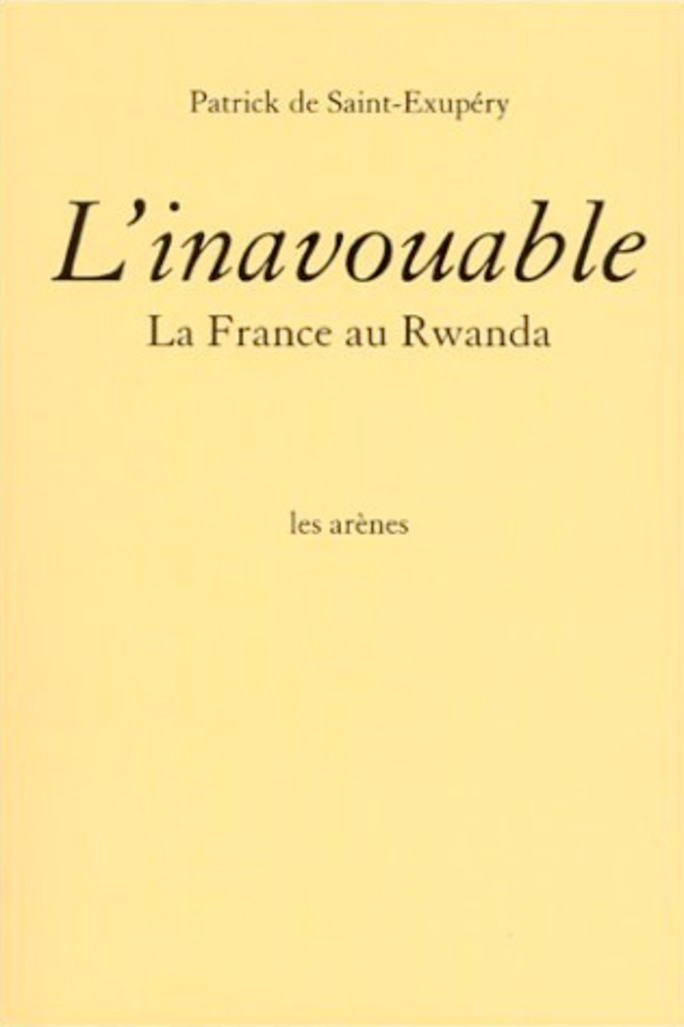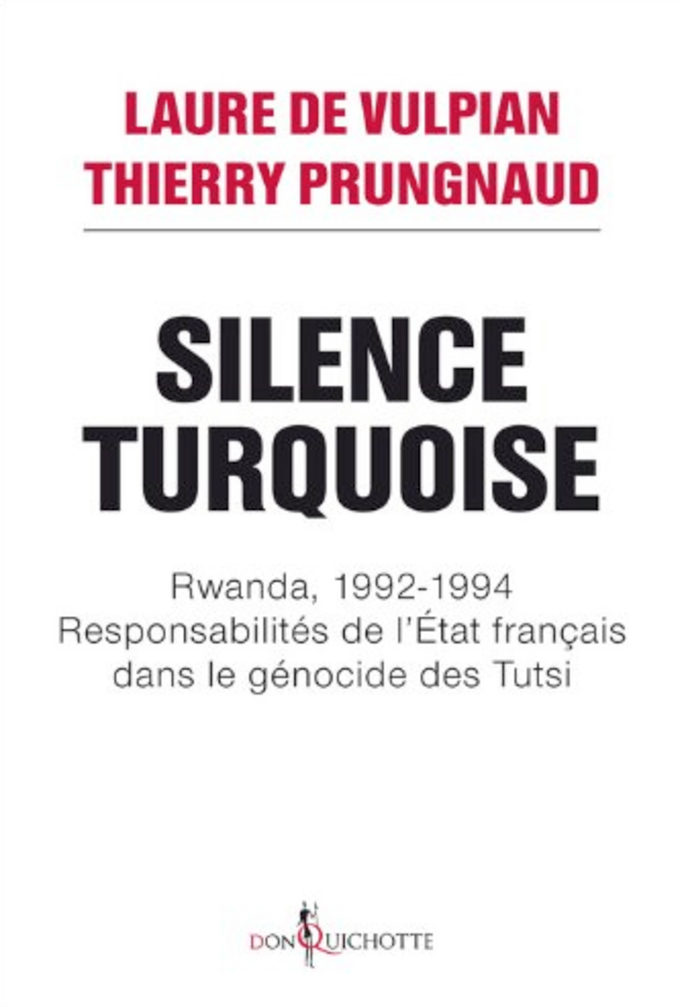On Sunday April 6th, 2014 the president of the European Parliament Martin Schulz and France's culture minister Aurélie Filippetti, both of them socialists, stood side by side in front of the Maison d'Izieu, a former orphanage in the Ain département of eastern France. It was here, exactly seventy years ago, that 44 Jewish children and seven supervisors were arrested by the Gestapo and deported to death camps.
This and many other official commemorations are a reminder to the France of today and to future generations that the genocide planned by Nazism, the extermination of one section of humanity because it was born Jewish, also took place on our territory. And that it was done with the complicity - active as well as passive - of the authorities of the period, namely the French state left in place after July 1940 following the self-destruction of the French Republic at Vichy and amid the descent into Collaboration.
These commemorations tell us that a nation's greatness is judged by its capacity to recognise its faults and mistakes. By facing up to the truth of a painful past as a way of healing painful memories. By not being blinded by a sense of infallibility and instead accepting one's weaknesses. And, by doing so, transforming a shameful or painful past into a form of guarantee that in the future we will be more clear-sighted, more vigilant and more watchful.
Yet far from being adopted as a matter of course, this noble and conscious approach of collective and national awareness in France has only come about after a long political battle. Having fought endlessly against one president of the French Republic, François Mitterrand – who was against this admission about the past out of both personal conviction and for political reasons – we had to wait for a speech by his successor Jacques Chirac before France officially, finally, confronted this accursed part of its history head on.
“There are, in the life of a nation, moments that offend against the memory, and the idea that one has of one's country,” declared President Chirac, in the name of the Republic, during a speech on July 16th, 1995 to commemorate the Vel d'Hiv round-up of thousands of Parisian Jews in July 1942. “Those dark hours will always sully our history and are an insult to our past and to our traditions,” added Jacques Chirac. “Yes, the criminal madness of the Occupier was assisted by French people, by the French state.” They were welcome words but they came very late; 50 years after the end of the Second World War.
So should we now have to wait a half-century for the French Republic, via its highest representative, to utter the words that it owes the Rwandan people? Words of apology, asking for pardon, words of truth. To state, quite simply, this historical fact: France, that is to say its presidency, its government, its state and its army, were complicit in the Rwandan genocide. Because for a long time it supported and armed the government which planned it, because it trained the civilians and military personnel who carried it out, because France espoused the racist ideology – known as Hamitic, a theory involving racial superiority – that motivated it, because it did not intervene to stop it, because it left defenceless the very people who asked for its protection, because it even helped facilitate the escape of some of the perpetrators of the genocide to neighbouring Congo.
Sometimes nations who understand that they are small, and are clear-sighted because they are weak, can set an example for those that consider themselves to be great nations, who are blinded by their desire for power. And indeed it is Belgium, the colonial power in Rwanda after Germany, that has twice asked the Rwandan people for forgiveness after the 1994 genocide, not just on the tenth anniversary but also back in 2000 through its then prime minister Guy Verhofstadt.
Thus it was that barely six years after the genocide a European political leader exhibited a sense of contrition that France still refuses to show. “A tragic trail of negligence, indifference, incompetence, hesitation and mistakes created the conditions for an unspeakable tragedy,” said Guy Verhofstadt. “And so here in front of you I accept the responsibility of my country, of the Belgian political authorities and military, and in the name of my country and in the name of my people I ask your forgiveness for that.”
A racism with colonial and missionary roots
The fact that the French ambassador was due to attend the commemorations for the 20th anniversary of the genocide in Rwanda on Monday - though in the end he was stopped from doing so by the Rwandan authorities – changes nothing. With Left and Right united on this, the French state decided not to honour the victims of the genocide, and in doing do they have dishonoured us. Even though they were also singled out for criticism by Rwandan president Paul Kagamé, the Belgian authorities did not alter their delegation for the commemorations; nor did this fact stop the Belgian foreign minister who led the delegation from criticising the Rwandan president’s comments. But then, it is true that it is easier to speak frankly when, in a spirit of mutual respect, one has recognised and accepted one's actions, in this case being blind to what preceded the genocide and then the indifference that made it even worse.
Clearly the presidency of François Hollande was not ready to head in the direction that his predecessor Nicolas Sarkozy had sketched out when, in 2010, he had recognised France's “blindness” towards what was starting to unfold in Rwanda in 1994. Though officially invited by his Rwandan counterpart to the commemorations on Monday, François Hollande is quite sparing when it comes to overseas visits and wanted justice minister Christiane Taubira to attend instead. This was itself a telling choice, given that the usual logic of France’s institutional hierarchy means that if the president does not go, it should be down to the prime minister or the foreign affairs minister to attend, even if it means the justice minister accompanying them. Should we understand from this that only the most senior black person in the government was appropriate for this commemoration, relegating in an unconscious way this final genocide of the 20th century to a merely African affair?
In fact, the genocide was nothing of the kind. Far from being what is habitually described as “inter-ethnic warring” where the butchers and victims are interchangeable and which can be reduced simply to intrinsically African violence, the Rwandan genocide says as much if not more about us, about France and Europe and our colonial heritage, our murderous ideologies, our crimes. And we cannot claim to be unaware of it, despite the stench of constant denial that permeates the French debate on Rwanda, still less so because our political classes support this approach with their boasting or their silence. Historians who are specialists in massacres that have occurred in Europe as well as in the Great Lakes region of Africa stubbornly remind us of what happened, especially in the studies carried out or encouraged by academics Jean-Pierre Chrétien, Stéphane Audoin-Rouzeau and Hélène Dumas.

Enlargement : Illustration 2

In a special edition of the history magazine Vingtième Siècle (see right), Audoin-Rouzeau and Dumas gave a lesson on this major event “which without doubt our societies have not (yet?) fully grasped”. In other words, a genocide of the Rwandan Tutsis which, in the space of three months, led to between 800,000 and a million people being killed, with just 300,000 survivors. “The genocide was the product of racism,” wrote Audoin-Rouzeau and Dumas. “A racism with colonial and missionary roots, that came from a Europe obsessed with racial hierarchy... Everywhere, right down to the smallest scale, Tutsis were exterminated under the passive gaze of the international community which, on April 21st 1994, in the middle of the massacre, withdrew most of the troops of the United Nations forces then in place...The genocide was planned, prepared and carried out by a state which had at its disposal local intermediaries on a political and administrative level, and the military and paramilitary means who were its instruments”.
And France was the unfailing ally of this genocidal state. A France presided over by the socialist François Mitterrand who, in 1994, was sharing power with a government of the Right, of which Édouard Balladur was the prime minister and Alain Juppé was the foreign minister. In the same issue of Vingtième Siècle, Jean-Pierre Chrétien modestly recalls the extent to which his warnings from 1993 about the impending genocide to come, and from as early as 1991 his attacks on the ideology of “anti-Hamitism” - a belief system that inspired the ethno-nationalism of the Hutus rather as anti-Semitism inspired the Nazis – remained unheeded by the French government. This latter held the same ethnic perceptions to the point where the French authorities were on good terms with the most extremist of the Rwandan political parties, the CDR, which had an explicitly racist programme.
This is the context in which Paul Kagamé, the Rwandan president who symbolises the victory against those who committed genocide and who represents Rwanda's reawakening, uttered the words in the publication Jeune Affrique that so annoyed France, from current foreign minister Laurent Fabius to the foreign minister at the time of the massacres Alain Juppé. Of course, like any individual in power who bases their rule on revenge against the former colonial powers or neo-colonialists, Kagamé does not observe diplomatic niceties in exploiting an inexhaustible seam in domestic politics in order to silence critics and the opposition. But even so, was he wrong in what he said in this interview given on March 27th?
“The Western powers would like Rwanda to be an ordinary country, as if nothing had happened, which would have the advantage of making people forget their own responsibilities, but that is impossible,” said Paul Kagamé. “Take the case of France. Twenty years on, the only reproach that is permissible in their eyes is of not having done enough to save lives during the genocide. That's true, but it masks the essential point: the direct role of Belgium and France in the political preparation of the genocide, and the participation of the latter in its actual execution. Ask those who escaped the massacre at Bisesero in June 1994 and they will tell you what the French soldiers involved in [the UN-mandated French military operation] Operation Turquoise did there. Complicit, certainly, at Bisesero as in all of the zone called the 'safe zone', but also participants.”
Paul Kagamé's accusations and the reality of genocide
Following the publication of this declaration, the former foreign minister Alain Juppé used his blog to call on “the president of the Republic and the French government to defend without any ambiguity the honour of France, the honour of its army, the honour of its diplomats”. He added that reconciliation with Rwanda cannot be achieved “at the cost of the falsification of history which is endlessly propagated against France, its political leaders, its diplomats and its army” (read the blog, in French, entitled “France's honour” here).
It would be an understatement to say that Juppé's words were quickly heeded, for the foreign ministry's spokesperson hastened to announce that “under these circumstances” justice minister Christiane Taubira would not as planned go to the Rwandan capital Kigali for the commemorations, these “circumstances” being the fact that “France is surprised by the recent accusations made against it by the president of Rwanda” (see full text, in French, here).
Yet of the two accusations made by Paul Kagamé, one of political support for the genocidal government, the other of active participation in genocide, the former should not even need discussing twenty years after the events. Having been widely documented by the research and investigations carried out since, the political support claim was already laid out in 1998 in a report by a parliamentary mission of inquiry headed by the socialist Paul Quilès, and for which the current interior minister Bernard Cazeneuve was the rapporteur. Even though this report was criticised for being cautious and for its use of euphemisms, France is explicitly criticized in it for its “underestimation of the authoritarian, ethnic and racist nature of the Rwandan regime” and for “military cooperation that was too involved”.

As for the active participation of French solders, while there is no independent witness showing this, events at Bisesero are still at the centre of a judicial investigation being carried out by the genocide unit of the Paris courts. This is because this episode marks the moment when soldiers and journalists, who in this capacity represented the true honour of France, became aware of the official lies and the shameful truths they were concealing.
Two men are testament to this, our fellow journalist , then at Le Figaro newspaper, and non-commissioned officer Thierry Prungnaud of the French special forces command unit the Commandement des opérations spéciales (COS). They were both witnesses, while the latter was also involved in this turning point of Operation Turquoise, a military operation launched by France in June 1994 under the authority of the UN, even though the genocide had been carried out.
Bisesero takes up fewer than ten lines of the 1998 Quilès report, but their very brevity was already evidence of embarrassment. Six years later, in 2004, in a fine book by someone whose conscience was appalled by the events there, even if it meant attacking his own people, Patrick de Saint-Exupéry tells how, acting on orders from above, for three days the French army at Bisesero abandoned the last Tutsi escapees from the genocide to their fate, despite having learned, belatedly, that the people they had been protecting up to that point were in fact the authors of the crime.
Eight years later, in 2012, with the help of journalist Laure de Vulpian of France Culture public radio, Thierry Prungnaud confirmed this story with his own account of events (see below left). And, moreover, in doing so he took apart the claims of his superior officer Marin Gillier who, in evidence to the Quilès inquiry, sought to brush aside the Bisesero episode. Since the summer of 2013 Vice-Admiral Gillier has been the director of security and defence cooperation at the French ministry of foreign affairs.

This soldier, Prungnaud, and the journalist Saint-Exupéry represent France's honour, while staying away from the twentieth anniversary commemorations represent its dishonour. None of this implies support for overblown rhetoric, but instead reflects a concern about this country, our country, which claims to set an example to the world, to be saving Africa by armed interventions in Mali and the Central African Republic, which is imposing the superiority of its values on people who arrive in the country with pride and in all their diversity and yet whom the governing elites stubbornly refuse to greet with humility and fraternity. Have they forgotten what really represented the greatness of France, despite many low-points and denials? That which represented a great leap towards justice, which was for the benefit of one excluded individual who had been discriminated against, simply because he was a victim of that hatred of the other which is in reality hatred of one's self and the ruin of humanity? Yes, this rallying cry of a country against a rotten part of itself, against the servitude in which the greatness of a nation had become lost in its blind obedience to a lie, to wrongdoing, even to crime?
This greatness has a name which has become universal, that of Alfred Dreyfus, an affair that foresaw the European catastrophe, and in which France finally rebelled against the depraved honour of its politics and army in order to save the honour of its people. One supporter of Dreyfus at the time, who saw the affair as a battle to ensure “France's eternal salvation”, used words that France could have uttered on April 7th, 2014 in Kigali to ask forgiveness from the victims of a genocide that it allowed to foment and to happen. That man was called Charles Péguy and he said the following: “...a single injustice, a single crime, a single illegal act, particularly if it is officially recorded, confirmed, a single wrong to humanity, a single wrong to justice and to rights, particularly if they are universally, legally, nationally and readily accepted … a single crime shatters and is sufficient to shatter the whole social pact, the entire social contract ... a single abuse of authority, a single dishonourable act will bring about the loss of honour, the dishonour of a whole people.”
------------------------------------------------------
- The French version of this article can be found here.
English version by Michael Streeter


